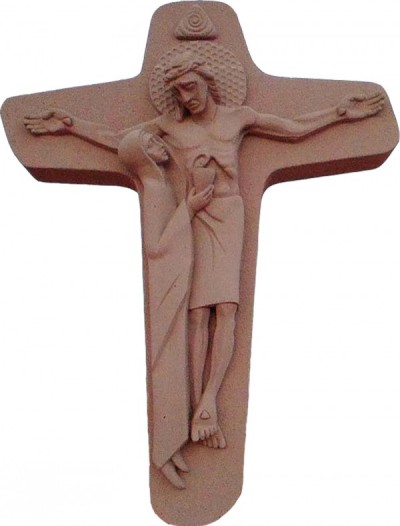One Flesh Union

It can be hard to get our heads around the amazing gift that Jesus made of himself by dying on the cross for our salvation. We are told that it was a personal sacrifice, that if we were the only one in need, he would have still gone through with it – his love for each of us is so boundless, so individual that it is as if his suffering was for us alone.
Wow! It’s truly overwhelming. Fortunately, God gives us a way to understand this extraordinary reality, at least a little, through the passionate, self-giving love of a couple. We know that many couples love with such intensity and commitment that they would willingly give their life for their beloved. This is more than just a nice thought – it’s actually the basis of the Sacrament of Matrimony; that the love of the couple illuminates and mirrors the love that Jesus has for his bride, the People of God.
In his letter to the Ephesians, St Paul writes,
“‘For this reason a man will leave his father and mother and be joined to his wife, and the two will become one flesh.’ This is a great mystery, and I am applying it to Christ and the church.”
(Eph 5:31-32).
By these words he indicates that the one flesh union of husband and wife is the pivotal point in understanding how Christ loves the Church.
Where does Christ become ‘one flesh’ with his bride? In the Eucharist.
 Literally, Jesus gives us his body, which we, as his bride, take into our body, giving ourselves back to him in deeper commitment and love. He sheds his blood by laying down his life for us, that we might have eternal life with him. It is a life-giving union.
Literally, Jesus gives us his body, which we, as his bride, take into our body, giving ourselves back to him in deeper commitment and love. He sheds his blood by laying down his life for us, that we might have eternal life with him. It is a life-giving union.
In the same way, a husband gives his body to, and lays down his life for his bride, who receives his body into her own body, responding with her own gift of self – totally surrendered to his perfect self-donation. It also is a lifegiving union, most especially if the couple also conceive a child.
In other words, the one-flesh union of husband wife, their total, reciprocal self-donation, illuminates the passionate love that Jesus has for each of us, his beloved bride. He gives himself totally to each of us and invites us to reciprocate – to give ourselves back to him in unreserved surrender to his love.
It was no mistake that the Eucharist was instituted on the eve of Jesus’ passion and death. The Eucharist is for us, a permanent, concrete reminder of his total self-donation, the point at which he ‘marries’ us in an eternal commitment.
St Paul is absolutely correct …. It is a great mystery and Easter is the perfect time to meditate on it!
Reflect:
1. What things (sins) in your life, block you from fully receiving Jesus into your life?
2. How does this understanding of the purpose and meaning of sexual union impact you?
3. In light of this meditation, how might Jesus be asking you to grow in your marriage?
